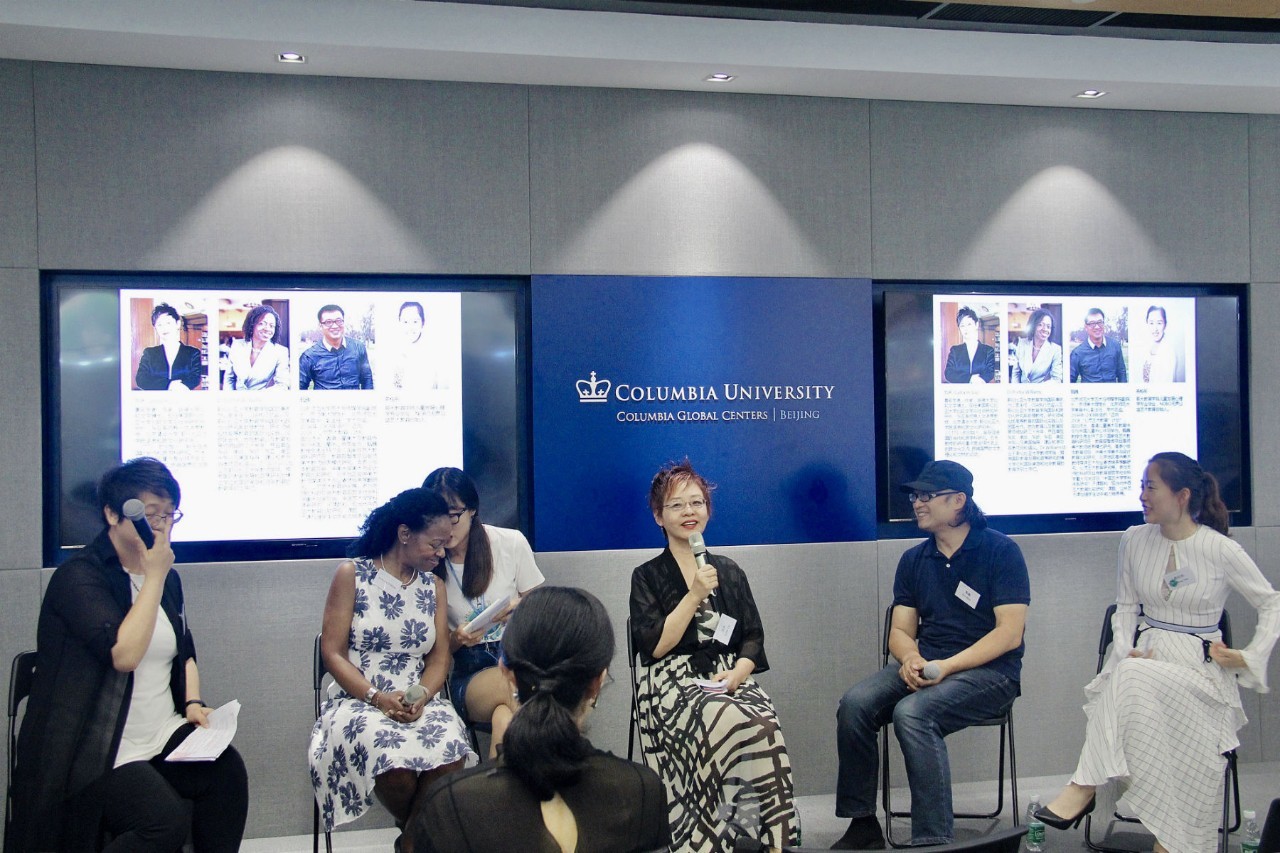The Third No-Boundaries International Art Exhibition Opened in Beijing

On July 21, Columbia Global Centers | Beijing opened the exhibition "No-Boundaries International Art Exhibition".
The opening ceremony was followed by an enlightening panel discussion on globalization and children's art education featuring Professor Lydia H. Liu, Wun Tsun Tam Professor in the Humanities and the Director of Institute for Comparative Literature and Society at Columbia University; Dr. Portia Williams, Director of the Office of International Affairs at Teachers College, Columbia University; Professor Wei Zhen, Professor of Beijing Normal University's School of Arts and Communications, Director of Beijing Normal University Gallery; Ms. Baitong Yan, Founder of No-Boundaries International Art Exhibition; and Ph.D. candidate Jian Zhu from Capital Normal University.
Children are the future. Although it is still unknown to us what the world will be like for the next generation, children’s artworks may shed some lights on our blurry vision of humanity’s future by disclosing how our kids perceive the world.
Professor Liu remarked that art could be the universal language for kids. Although children come from different countries and cultures, they may all share a common perception of the shape and color of the world.
Professor Wei Zhen, the academic advisor for No-Boundaries International Art Exhibition, shared his unique experience after seeing thousands of paintings from 15 countries or regions. "For many times, I cannot tell the nationality of the artist simply by seeing the artwork," Professor Zhen observed. "The boundaries sometimes are unclear. Thus, it might be improper to assume the identity of the artist and judge the artwork with a single standard based on that assumption."
Ms. Baitong Yan believes that the primary goal of this exhibition is to encourage our kids to become global citizens. Jian Zhu, the moderator of this panel, also thinks that art education nowadays is critical to cultivating our kids to cope with globalization.
When talking about how art education would further children’s psychological development, Professor Liu commented that theme of the exhibition, namely "One Tree, One City", revealed the struggle of nature in the process of urbanization. "This theme would push our children into caring about a tree, even before they begin to think of themselves,” Professor Liu highly praised. "This is why art education is so important for the kids to understand the world."
Professor Wei Zhen remarked on the exhibition from a different perspective. He said, “Education nowadays is teaching our kids to be in accordance with the standard answer, which is supposed to be the only and absolute correct way to respond to a question. However, kids educated in this way would lose the ability to imagine, to create, as well as to be open and tolerant in other possibilities.”
Ms. Yunlan He, the academic advisor of No-Boundaries International Art Exhibition, also sent her best wishes for the exhibition. "The core of art education is to cultivate integrity. Learning to create and appreciate artworks, our children could learn about how to love and how to be responsible to the world. This is the only way to make up for what the school education cannot do for our children, namely, to keep our children away from being self-interested and selfish all the time."
"The timing of this exhibition is very important," Dr. Williams addressed in her speech. "In America, we are talking about the wall, while here, we are discussing that art has no boundaries."
Professor Liu wrapped up the panel session with one critical question-what are we talking about when we talk about globalization? As Professor Liu pointed out, some particular forms of art are more influential than others. It is quite noticeable that art forms such as Japanese manga and Hollywood films have predominantly affected people, particularly children, all over the world. However, at the same time, many forms of arts are at the edge of extinction. These circumstances lead us to think about the definition of “globalization” more seriously, which, as Professor Williams described in her speech, would be “hard but critical”.
The Third No-Boundaries International Art Exhibition will itinerate in five cities, including Beijing, Paris, Rio, Nairobi, and New York.